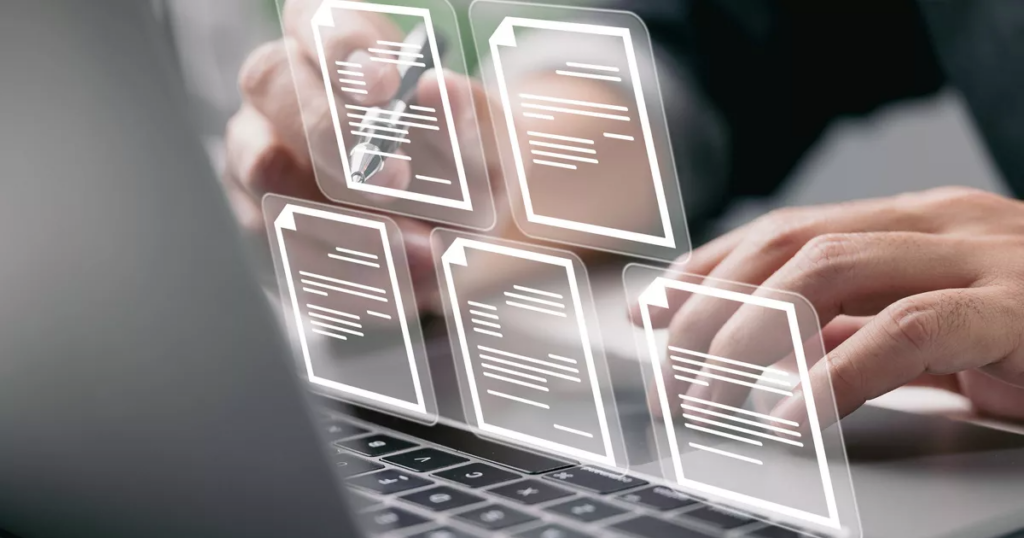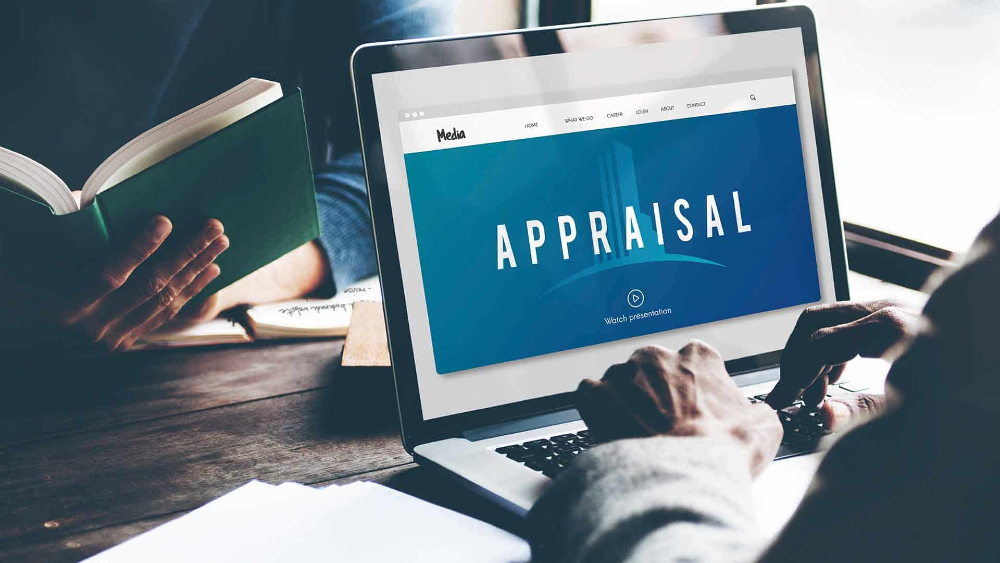
It’s on the Human Resources (HR) team to come up with well-written and non-ambiguous letters/emails that are used for clearly communicating a myriad of happenings and notices to staff/company-wide. Since the HR team needs to be all-hands-on-deck to effectively manage the various situations that require an email and/or letter, it can be quite overwhelming to have to come up with the body of content for so many different types of scenarios. That's why we've decided to put together 38 of the more common scenarios plus templates that would require the HR team to send out an email or letter below, so that it's easier for referencing!
1) Internship offer
When your company is ready to formally extend an offer to an internship candidate, this letter will work as a formal agreement between you and the intern. An internship offer letter should contain details about the internship, such as the position and the terms of the agreement (stipend, working hours, duration of the internship, etc).
Check out our template: Internship Offer
2) Internship completion letter
After the completion of an internship, the HR manager or the company’s leader will be providing the candidate with a certificate for the work they did during the internship. This serves as proof that they have successfully completed the internship, and now have the basic corporate know-how to work or take on a job.
We’ve got just the template: Internship completion letter
3) Formal job offer letter or email
This template is suitable for use when your company would like to offer a job to a selected candidate. It’s a confirmation of the terms and conditions of hire (salary, job position, working hours, compensation, etc) that were usually already agreed upon with the candidate in the interview during negotiations.
Here’s a sample template: Formal job offer letter or email
4) Informal job offer letter or email
If you’re looking for something a little different and want to welcome your new employee in a more warm and personal manner, you can use the sample below. It allows you to be more brief yet straightforward when reaching out to the candidate to confirm the job role plus terms and conditions of hire.
This is the template you need: Informal job offer letter or email
5) Employee termination/dismissal letter
If you need to let an employee know that they’ve been fired in the most professional and tactful manner, sending a job termination letter stating the reasons and circumstances of letting them go will help reduce the risk of lawsuits, plus provide all the necessary information for a smooth ending of the working relationship.
You’ll need this template: Employee termination/dismissal letter
6) Annual bonus letter
Bonuses are usually given out annually and to announce this exciting news in a private and confidential manner (as each individual would be receiving a different amount based on performance), this letter basically talks about the bonus the employee has worked hard to receive, how much it is, and by when they’ll receive it.
Refer to this template here: Annual bonus letter
7) Appraisal letter

This is sent to employees after a performance appraisal exercise. It usually has an attachment which is the appraisal report, and is aimed at showing the receiver how valuable they are to your company, and their hard work is always appreciated. If done correctly, it can be a great motivator for employees.
Check out our template: Appraisal letter
8) Demotion letter/reduction in rank letter
There’s never an easy way to deliver bad news, but with a professionally written letter that clearly and properly explains the matter, it may help to ease the tension. This letter contains the new role of the employee, why the demotion is taking place, who their new manager or supervisor will be, and when will the demotion take effect.
We’ve got just the template: Demotion letter/reduction in rank letter
9) Probation extension letter
Sometimes, some things just need more time to work well. With that said, this type should be used to inform the new hires who are on probation that it has been extended. Within the letter, it should contain the reason for the extension of the probation period, and set goals for the employee to improve, grow and work better.
Here’s a sample template: Probation extension letter
10) Resignation acceptance (relieving letter)
One of the first steps in a good resignation policy is to acknowledge that you accept an employee’s request to resign. Having an established policy in place to communicate with employees who are leaving the company will help you to handle an employee’s departure in a positive and respectful manner.
This is the template you need: Resignation acceptance (relieving letter)
11) Salary increment letter
Employees who consistently perform well and deserve to be recognised for it would find increments like this very rewarding and motivating. This letter is essentially an official notification telling the employee how much their salary has gone up and by when this new pay will come into effect.
You’ll need this template: Salary increment letter
12) Suspension letter
The tone should be formal and firm, as this letter will be very clearly stating the reason why the employee is being suspended in the first place, as well as their right to oppose the suspension if they think it’s unfair. You should also mention things like when the suspension will come into effect, and the duration of the suspension.
Refer to this template here: Suspension letter
13) Transfer email/letter
Sending this to an employee can either mean shifting departments within the company at the same location, or shifting locations within the same company. The email/letter should contain the necessary information such as effective date of transfer, location of transfer, and reporting manager’s name.
Check out our template: Transfer email/letter
14) Warning letter
This will contain details about the employee’s misconduct/failure to perform, and the corrective measures that will occur if the behaviour is not fixed. After the warning, either the employee corrects their behaviour, or they don’t (in which case you might just end up using the suspension or termination letter template!).
We’ve got just the template: Warning letter
15) Rejection letter/email to pre-interview applicants

For reaching out to job applicants who did not qualify for an interview for your open position, we have this template for you. When you write and send a rejection letter that’s clear and professional, this ensures a great employer branding, and is crucial to improving the candidate’s overall experience with your company.
Here’s a sample template: Rejection letter/email to pre-interview applicants
16) Rejection letter/email to first round interview candidates
It’s very important that you take the time to briefly but clearly explain the reason(s) why the candidate wasn’t able to advance to the next round of your hiring process. This isn’t only a kind gesture, but the proper and professional way to address your candidates, as they would appreciate receiving an official notification so they can continue the job search.
This is the template you need: Rejection letter/email to first round interview candidates
17) Rejection letter/email to final round interview candidates
Having a shortlist of potential candidates means that you’ll still have to reject quite a number of people for the specific job role. It’s important to keep in mind that these same candidates may be a good fit for some other current or future job opening down the road, so it’s best to send them a polite response post-interview, and remain in their good books!
You’ll need this template: Rejection letter/email to final round interview candidates
18) Formal thank you letter/email to employees
Make saying “thank you” to employees or even other superiors a norm in your company, by sending formal thank you letters/emails as part of your daily routine. It doesn’t hurt to show gratitude and appreciation for the hard work they put in, and can even be a good motivator. In fact, you could be setting a good example for other leaders to follow!
Refer to this template here: Formal thank you letter/email to employees
19) Informal thank you letter/email to employees
You don’t have to wait for that “right moment” to say thank you for help received from a colleague, or guidance from a senior; just some common courtesy and the desire to make a good impression. So, if you want something simple and quick to send, this template will help you express your gratitude in style.
Check out our template: Informal thank you letter/email to employees
20) Formal recognition letter/email to employees
Don’t forget to send an appreciation letter to employees to thank them for successfully completing an assignment/activity/specific project/etc. It’ll not only make them feel good about themselves and motivate them for future work, it’s a crucial part of your employee recognition program.
We’ve got just the template: Formal recognition letter/email to employees
21) Informal recognition letter/email to employees
Having a good employee recognition program can really bring your organisational culture to the next level and significantly reduce your turnover rate. This is why it’s important to make it a routine for you to send recognition letters/emails! This informal template allows you to connect with your employees on a more personal level.
Here’s a sample template: Informal recognition letter/email to employees
22) Preboarding email template

This is a great way of showing you care about new hires, and that you're excited about having them on board. Writing and sending an upbeat welcome letter/email to a new employee is an important step in creating an effective onboarding process, plus helping them to be integrated smoothly.
This is the template you need: Preboarding email template
23) Welcome letter or email to new employee
Your goal is to make your new employee feel at ease, and to come prepared on their first day. Make sure you include practical details, like where they can find the bathroom and nearest eateries! You can also attach employment paperwork, benefits plan and/or company policies to give them a heads-up.
You’ll need this template: Welcome letter or email to new employee
24) Onboarding email template
Many employees believe that companies should have an excellent onboarding job. The following template will ensure that your new hire has everything important settled, such as their bank account details and that they've settled in properly with their new equipment.
Refer to this template here: Onboarding email template
25) Employee onboarding feedback email
Regular feedback can improve employee retention. By asking the new hire(s) for feedback, you’re helping yourself. Ask the employee to list anything they felt was missing from their first day. We recommend sending the feedback email at the end of the employee’s first week.
Check out our template: Employee onboarding feedback email
26) New employee announcement email
Sending an email like this to the entire company ensures that everyone is aware of the new addition to the team/department, and will be able to help make them feel welcome. It'll also act as a sort of opening where other colleagues will be able to approach them with some nuggets of information.
We’ve got just the template: New employee announcement email
27) Event reminder email
By sending event reminder emails, it'll help your employees to keep your event in mind, and be able to make the necessary arrangements to attend. You can also ask for feedback in the email in case some of them have other suggestions or want to voice their concerns (about location/budget/food/etc).
Here’s a sample template: Event reminder email
28) Internal promotion announcement email
Employee promotions are important moments that show how much you value their dedication, skills, and leadership potential. There are a variety of different ways to announce the promotion of an employee; smaller companies may announce during meetings when all employees are present, whereas larger companies tend to use email.
This is the template you need: Internal promotion announcement email
29) Refer a friend for a job email/employee referral

Some companies allow their employees to refer friends/suitable candidates for available job openings. Internal communication with employees is one of the best ways to let them know what kind of job openings are there in the company, as well as what skills and knowledge are required for those jobs.
You’ll need this template: Refer a friend for a job email/employee referral
30) Requesting employee feedback
Getting meaningful and honest feedback isn’t always easy. Employees may feel uncomfortable revealing their true thoughts, so you'd need to be careful in how you word your email, in order to encourage them in a way that increases the likelihood that they respond with helpful, actionable feedback.
Refer to this template here: Requesting employee feedback
31) Email tips for employees to ace performance review
It's no secret that employees will be nervous about an upcoming performance review process, so it's up to you to do your best in allaying their nervousness, or provide tips for them to do well. Sending an email like this will show that you care about them, and that you want them to do well.
Check out our template: Email tips for employees to ace performance review
32) Email reminder for employees (performance review)
It's only human to forget about certain things, especially if someone has a lot to deal with on their plate. This is why it's important for HR to send a reminder email nearer to the final date of the performance review, so that it jogs the memory of those who have yet to complete theirs – in a gentle yet professional way!
We’ve got just the template: Email reminder for employees (performance review)
33) Invitation to join career training
This is to announce a group training or orientation to the employees, so that they can have all the relevant information in one place for easier reference. It provides details on the training's purpose as well as information about the date, time, and location.
Here’s a sample template: Invitation to join career training
34) Request rejected/denial email
Many management responsibilities require decision-making, which may result in delivering rejections via denial emails/letters. There are many reasons you may need to write one, so understanding the details behind a denial email/letter and the circumstances which may lead to one, can help with your day-to-day management duties.
This is the template you need: Request approval/denial email
35) NDA (non-disclosure agreement)/confidentiality clause
Almost all businesses nowadays have sensitive information that needs to be protected, which is why getting your employees to sign an employee confidentiality agreement may be the best way to preserve privacy and ensure the integrity of your business’s data.
You’ll need this template: NDA (non-disclosure agreement)/confidentiality clause
It can be said that by creating several email and/or letter templates will be able to help you speed up your HR’s recruitment and onboarding processes. Having these on-hand means that with just a few clicks, you'll be able to get them up and ready to hit "Send" in no time, saving yourself the hassle of having to think of what to write!